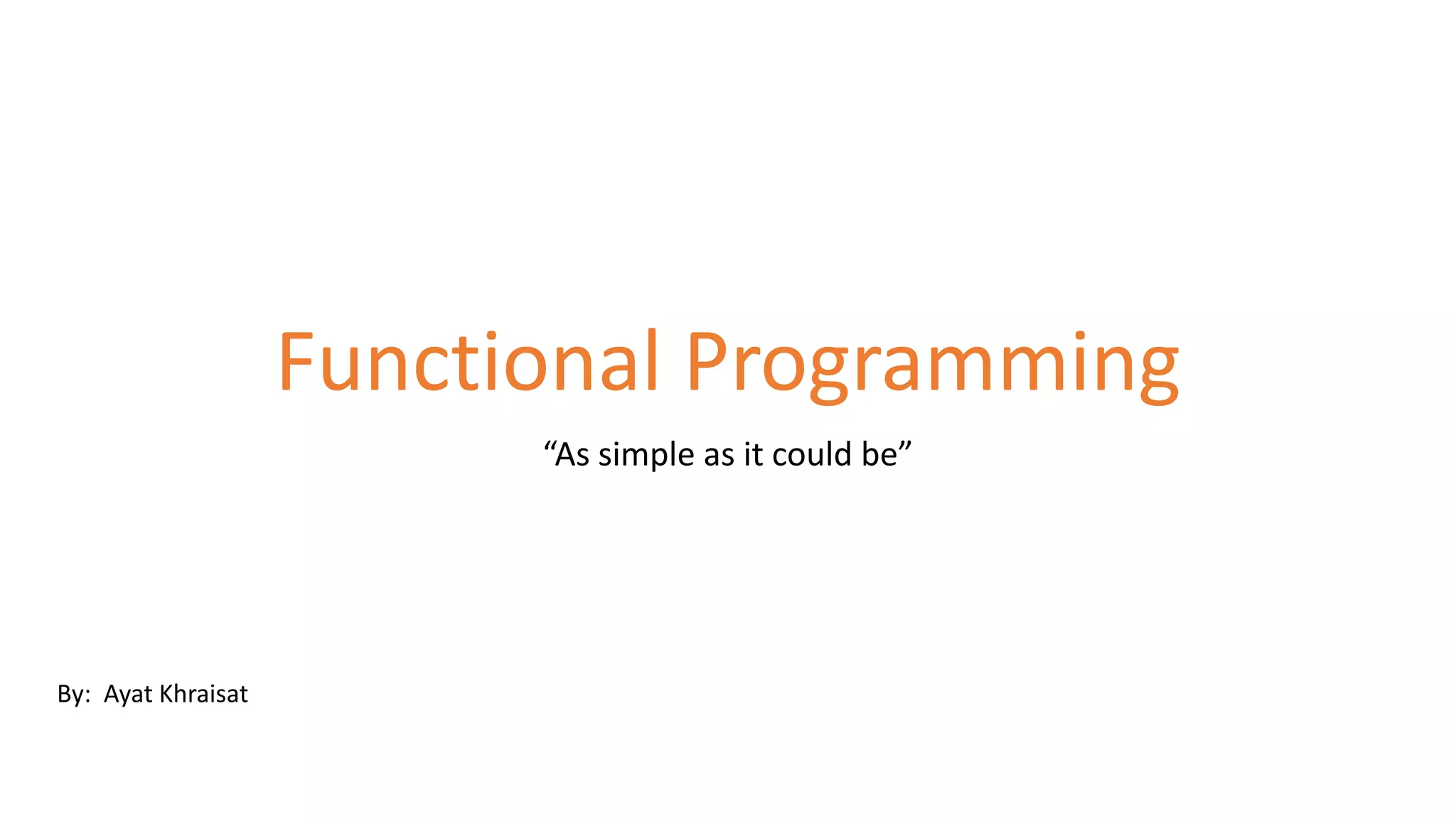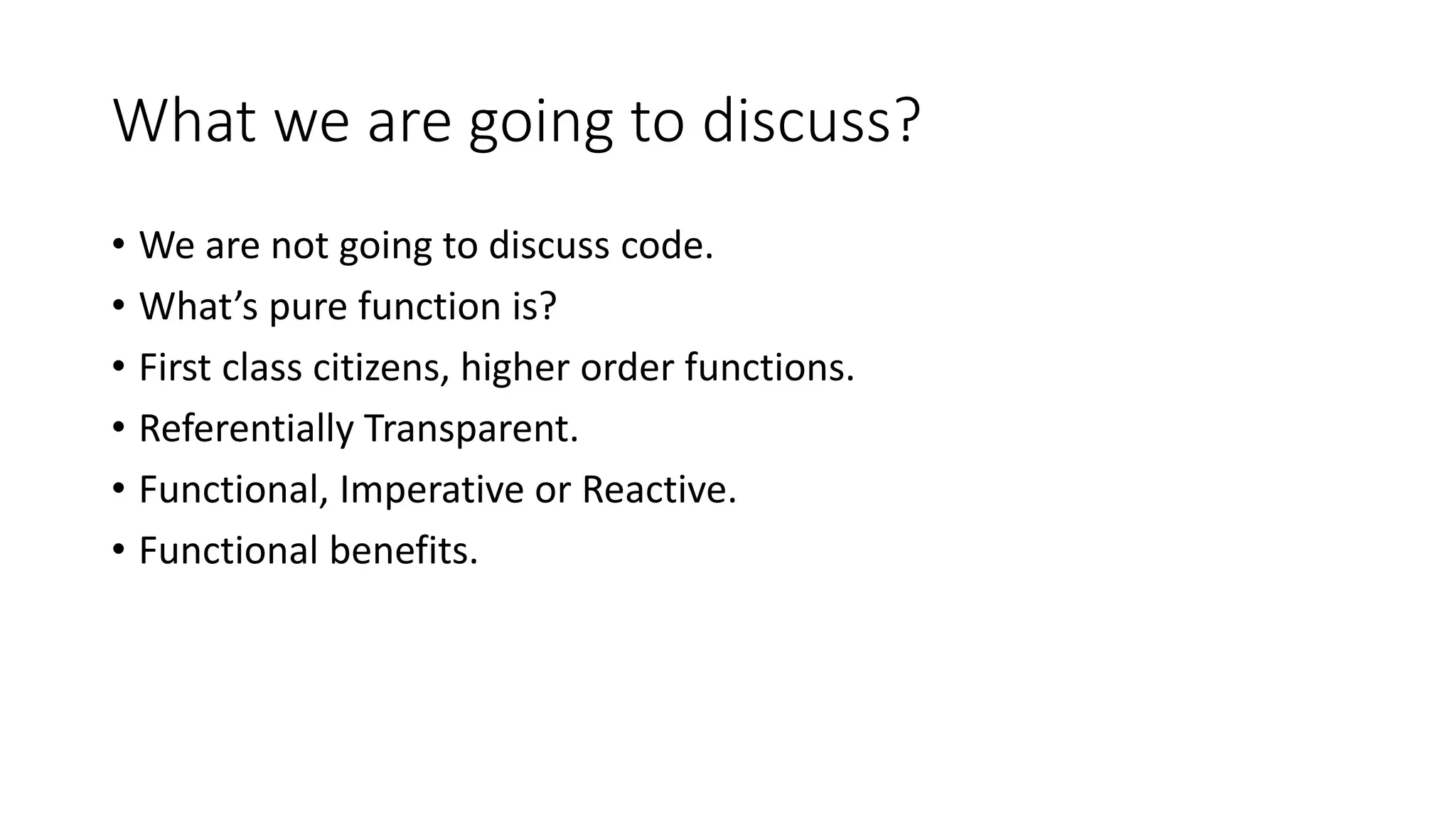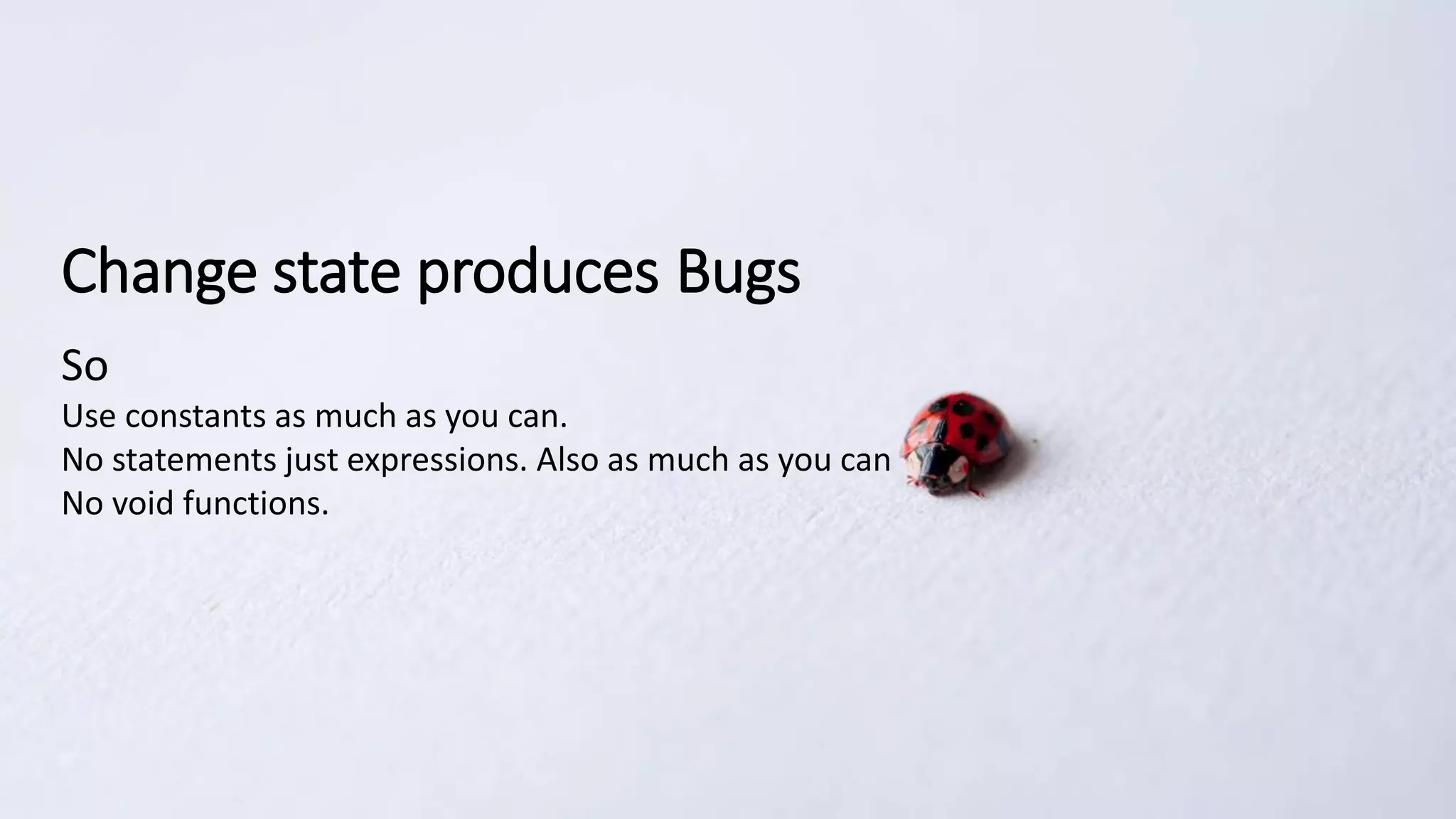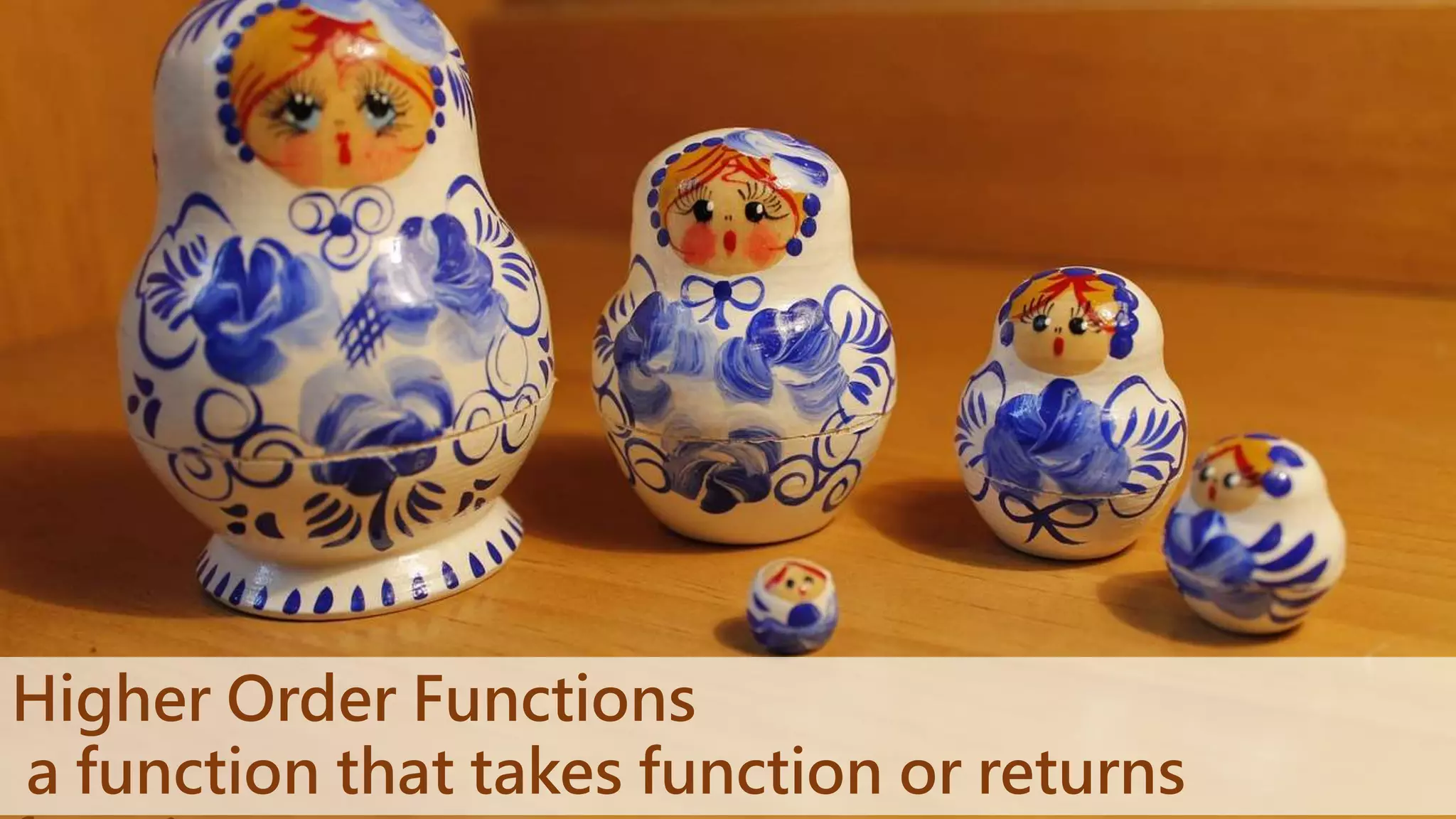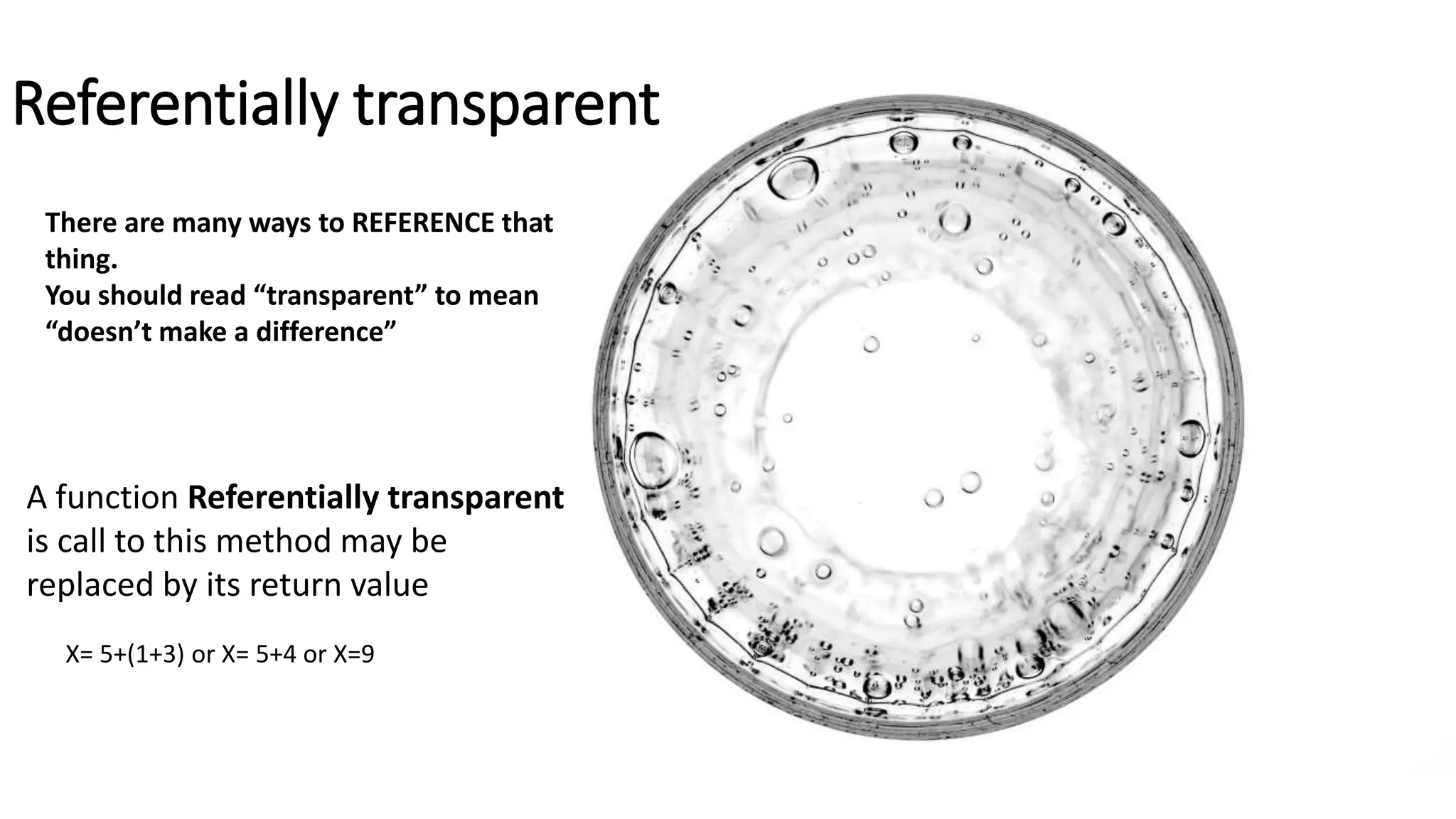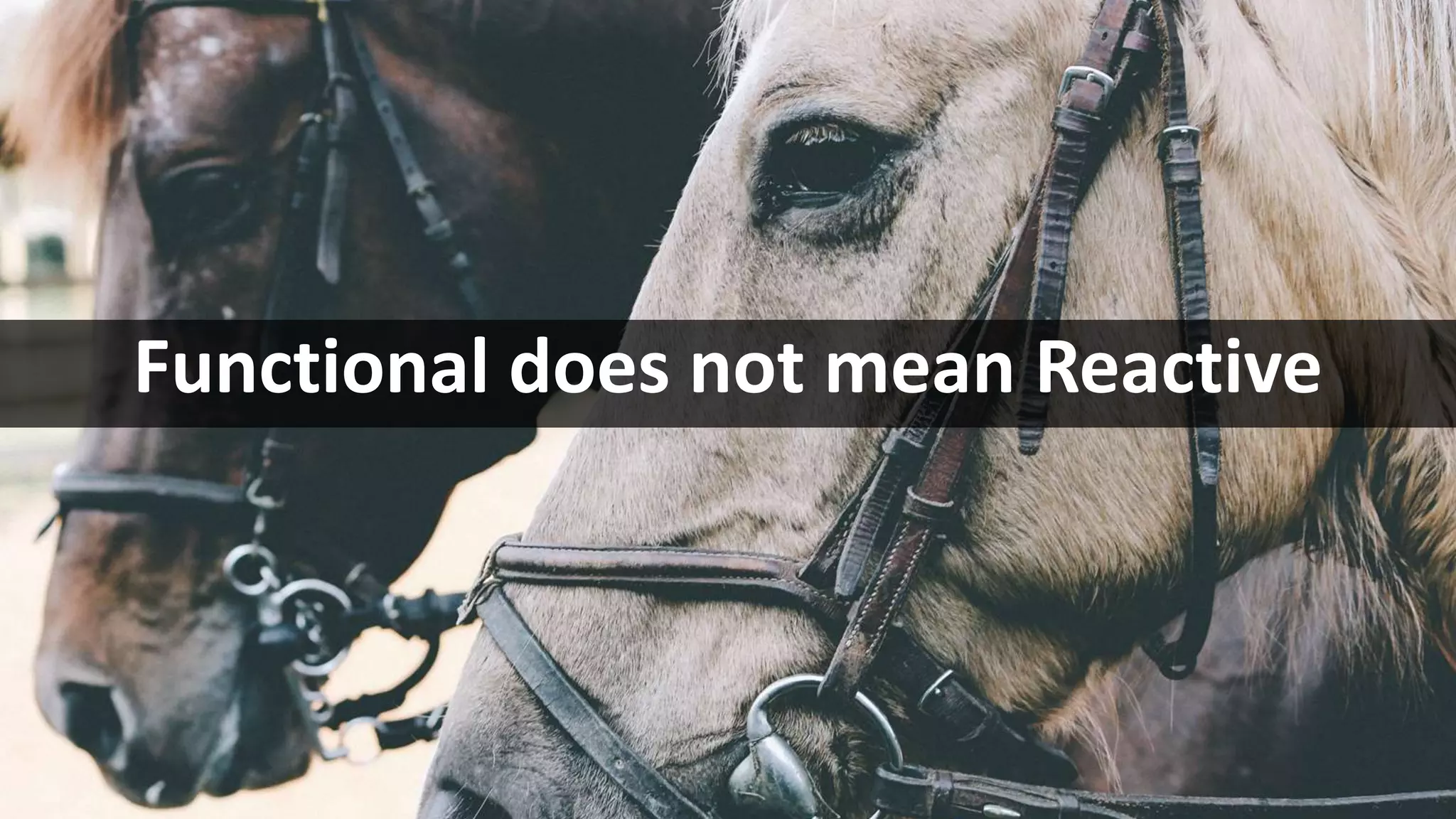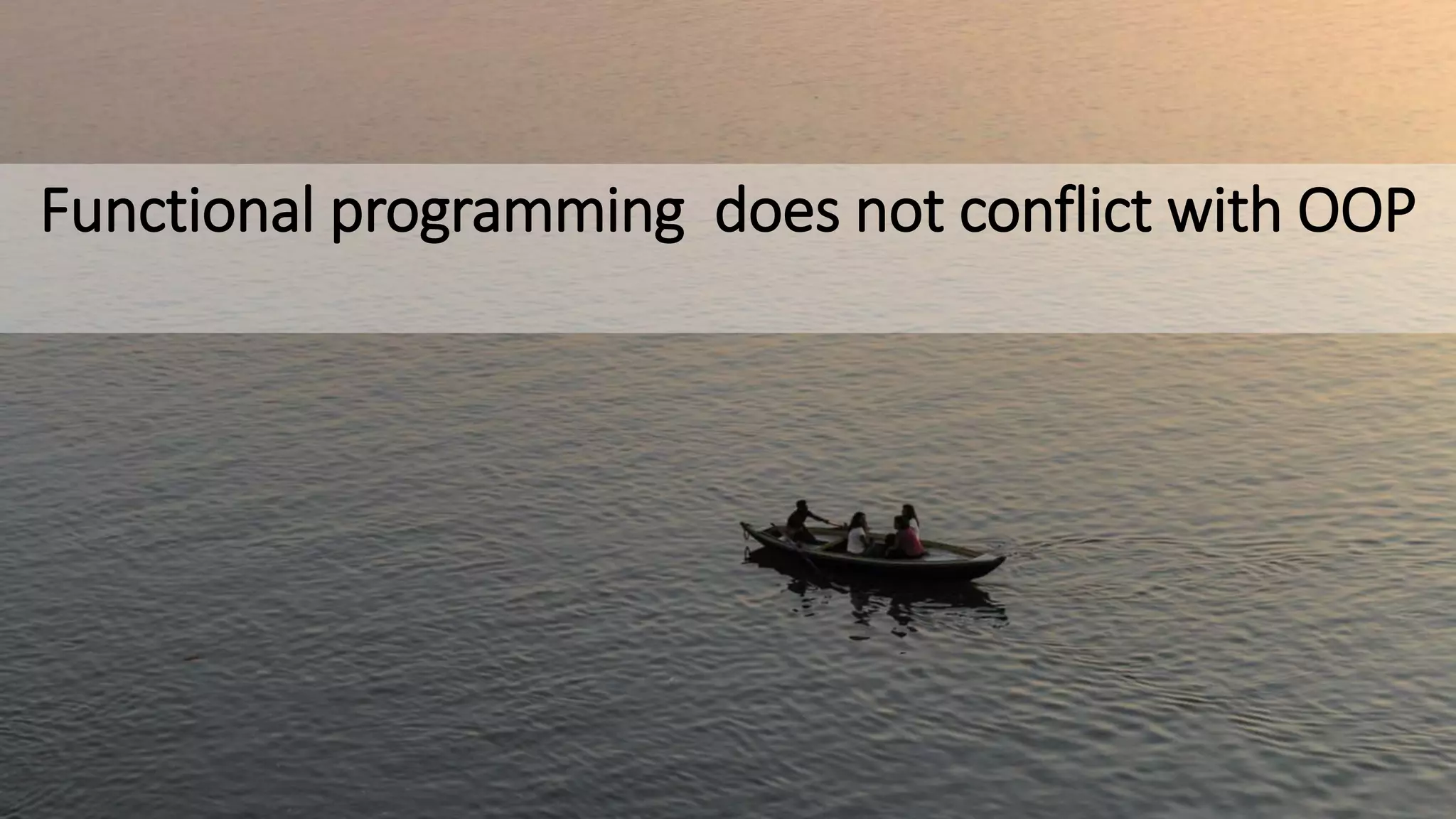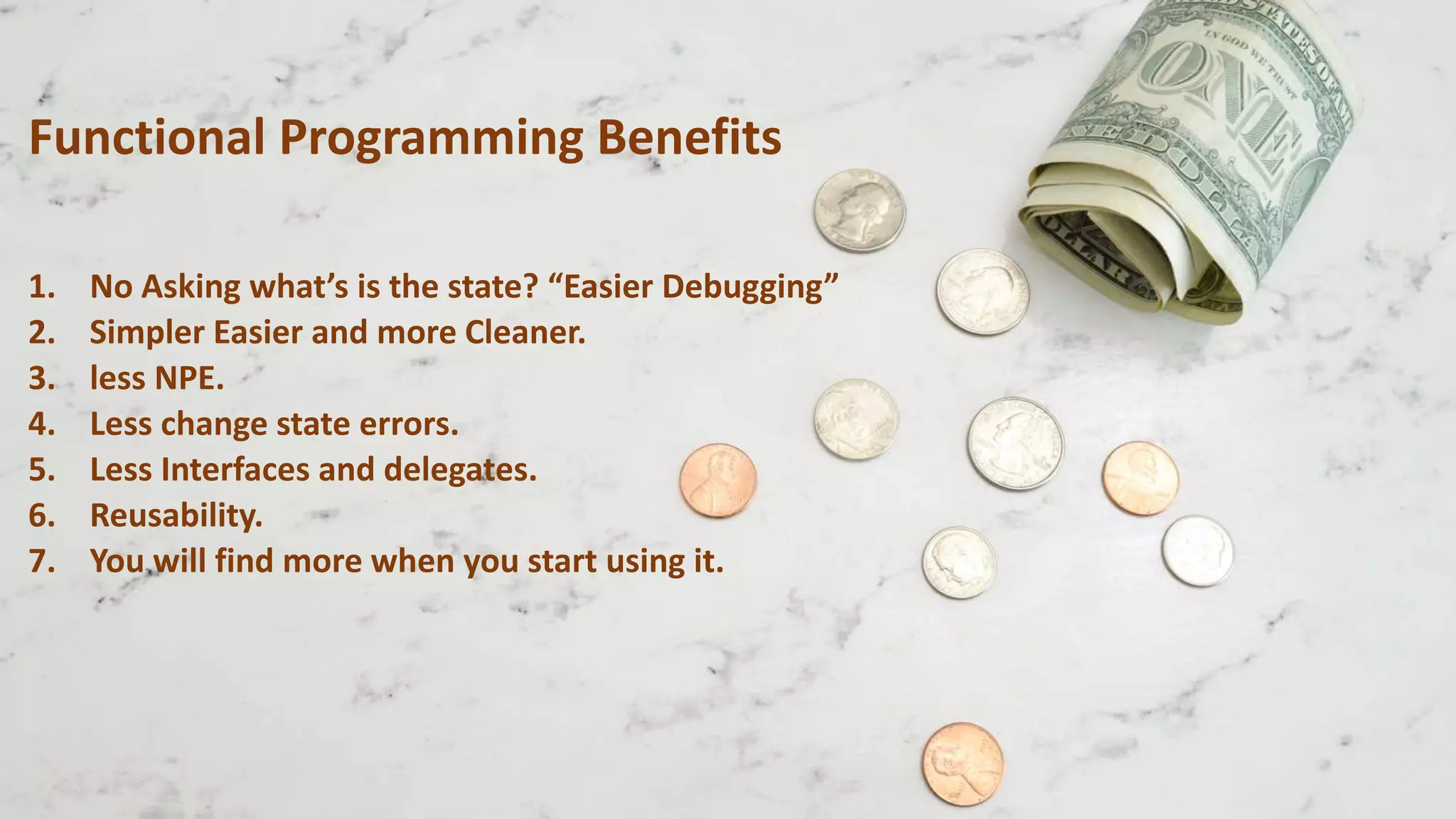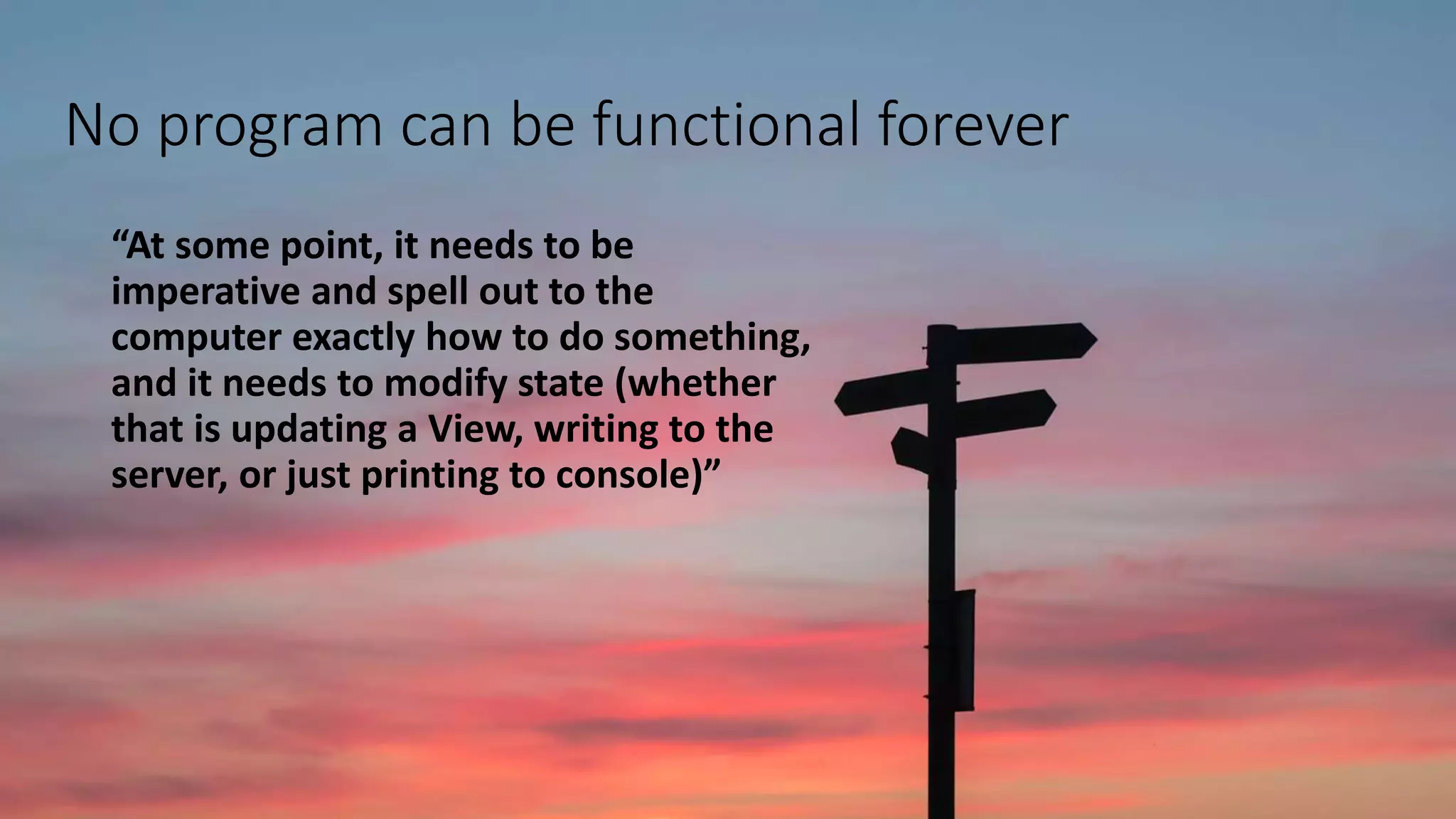The document discusses functional programming concepts like pure functions, higher order functions, and referential transparency. Pure functions are those whose return value depends only on their input values, without any observable side effects. Higher order functions are functions that take other functions as arguments or return functions. Referential transparency means a function call can be replaced by its return value without changing the program's behavior. The document argues that functional programming benefits include easier debugging, simpler and cleaner code, and increased reusability. While not all programs can be purely functional, its principles can still be applied.
